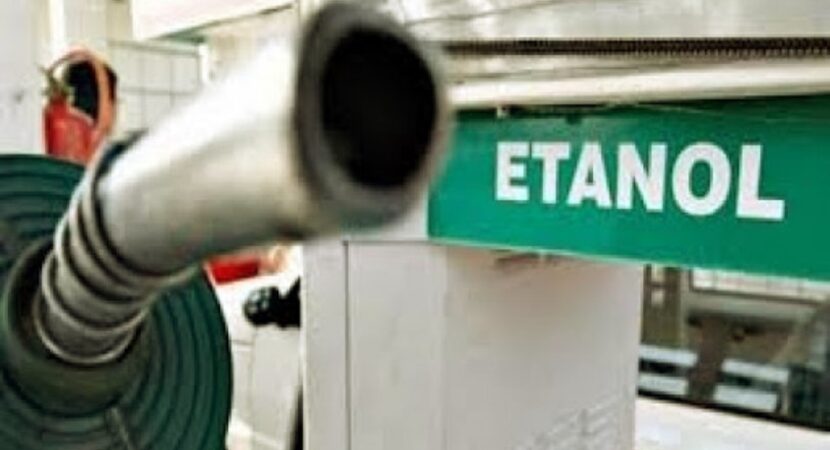
Ethanol prices at the pumps may rise again with a shortage of sugar and an increase in anhydrous alcohol; Brazilians are going to “pay the bill”
The price of hydrous ethanol started the week with very robust prices at distributors. This is due to the strong expansion of 10,05% in the producing units in the previous week. In addition, according to the Sugarcane Industry Union (Unica), due to the break in sugarcane harvests, production will decrease, which means higher prices for sugar and for ethanol, which may become even more expensive at the pumps in the coming weeks.
Read also
- Ethanol price reaches almost 5 reais at the pumps and filling up with gasoline becomes more advantageous in some Brazilian regions
- Ethanol price evaporates at the plants and exporting the biofuel to the USA, the world's main consumer of ethanol, becomes a very advantageous 'salvation'
- Ethanol production plummets and mills increase sugar production due to low sugarcane prices
- Mixing hydrogen with ethanol promises to revolutionize performance and reduce fuel consumption in flex-fuel engines
- Ethanol plants and sugarcane suppliers are fighting to share revenue from carbon credits from the federal RenovaBio program
- Direct sale of ethanol from plants will stimulate competition and curb the increase in gasoline prices at gas stations
Another no less important factor is that higher sugar production by industries in the Center-South prevailed, while not all units are operating at full capacity, and even some have not even opened the 21/22 harvest.
Therefore, with less supply, the competitiveness between ethanol and gasoline becomes more solid, an average of R$ 1,80 to R$ 1,90 difference in prices at the pumps.
Another point to consider is that the distributors also anticipated, in purchases, the reaction of oil, which rose from US$ 68 a barrel in London, and the possible rise that gasoline could suffer.
Sugar shortages could further increase the price of ethanol at pumps and consumers pay the bill
The drought and low rainfall in 2021 were some of the main factors that impacted the drop in sugarcane production and that could directly influence the rise in the price of ethanol at the pumps.
The president of the Federal District Fuel Union, Paulo Tavares, explains that “estimates vary between 590 and 530 million tons of sugarcane, with a drop of 15 to 75 million tons of sugarcane compared to the previous harvest”.
According to Tavares, another important factor that contributes to the increase in the price of ethanol is that dealerships increased gasoline by 0,10 cents, due to the increase in anhydrous ethanol, which closed at R$ 3,37 since the last readjustment, carried out on Friday (7).
And of course the price increase at the pumps will fall into the lap of the consumer. “Anhydrous ethanol makes up 27% of gasoline, that is, 1/3 of common gasoline is anhydrous ethanol. If the latter rises in price, gasoline rises in the proportion that it represents. Today, we already receive more expensive gasoline due to the effect of anhydrous ethanol”, he reveals.
The reduction in sugar production will be stronger than that of ethanol and, according to Unica, from the second half of June, the situation may return to normal. “The increase in supply should happen in a more significant way from the month of June, making ethanol more competitive again”, informs through a note.
Gasoline prices could skyrocket and ethanol could run out of stock due to the shortage of anhydrous alcohol; shortages will impact even more the pockets of Brazilians
Exemption from PIS and Cofins taxes for fuel came to an end last week and businessmen in the field were not at all satisfied. At the time, the measure was created to contain the rise in the price of gasoline and diesel applied by the oil company Petrobras. Now, there is a new concern for businessmen: the scarcity of anhydrous alcohol. The lack of this input can raise the price of fuel and cause a shortage of ethanol at gas stations, and in the end it will end up in the pockets of Brazilians.
The executive director of the Brazilian Association of Independent and Free Fuel Resellers, Rodrigo Zingales, says that the anhydrous shortage may be a reflection of the market's performance, based on the interests of the plants. “A sugar and alcohol plant is capable of producing sugar, hydrous ethanol and, eventually, anhydrous ethanol. What happens is: if the international sugar price is high, the mill will prefer to produce sugar instead of ethanol”, analyzes.












